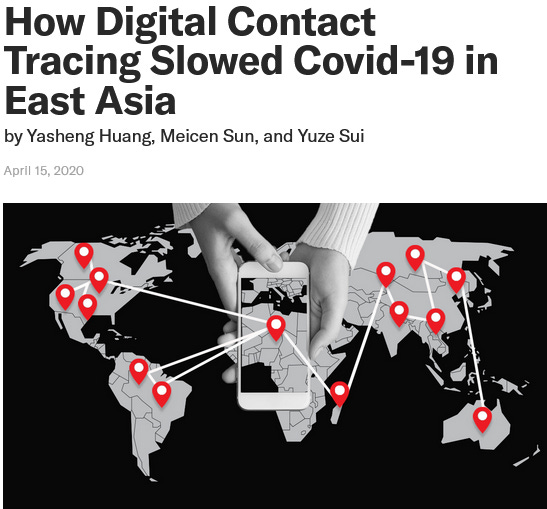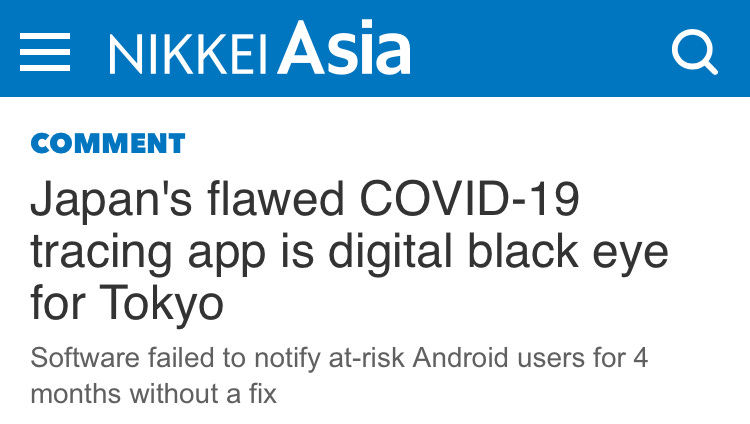Do you remember back in spring 2020 when we were told that Singaporean-style digital contact tracing would help to control the pandemic?
I’m sure you noticed that it didn’t. Japan’s contribution, its app COCOA, was a glitchy embaressment in operation from June 2020 to November 2022.
This week, Japan’s Digital Agency released its post-mortem of COCOA. In addition to detailing various technical defects, the report also provides results of a user survey.
So besides the fact that contract tracing for low-IFR viruses is ill-concieved to start with, the app didn’t work properly and the majority of users couldn’t think of anything nice to say about it. So surely even the Japanese government will give up on this nonsense, right? Oh, if only.

Specifically, in the user survey, 74% of COCOA users who recieved a notification of exposure changed their regular behaviour in order to reduce their contact with others, e.g., by working from home and refraining from going out on weekends. The report authors latch on to this “merit” to justify further R&D of contract tracing apps to be deployed in future outbreaks of contagious madness.
For younger age groups who are frequently at high risk of infection, aren’t sufficiently encouraged to change behaviour through existing communication methods, and were confirmed to change their behaviour after notification more than other age groups, strong recommendations tailoured to the user’s situation should be considered.
…
In addition, to encourage use by young people in particular, it is necessary to consider the option of making strong recommendations (e.g. legal obligations to install, obligatory installation by visitors/spectators at events, recommendations for tests, etc.) by positioning such apps as a new means of encouraging behavioral change in the fight against infectious diseases.
Of course, the authors take it for granted that post-notification behavioural charges have public health benefits and don’t bother with minor details like hard evidence. In reality, having healthy people stay home unnecessarily is a net negative for the socioeconomy. Once again though, the willingness of the Japanese public to comply with the government’s pointless requests just incentivises the government to make more pointless requests.
But it’s refreshing to see government agencies honestly admit they want to use technology to better control people’s movements, with infection prevention as an excuse. That’s because the point of copying the policies of authoritarian countries like Singapore has always been to make formerly liberal countries more like Singapore. You can’t have technocracy without technology.








Thanks for the update, Guy Gin. This is great news. I now have more people I can laugh at. In fact, I am going to take a walk right now and I will laugh in the face of every person wearing a mask. My guess is I will laugh at about 225 people. It will be a short 30-minute walk. On weekends in the park, I manage to get over 400. I had to buy a new hand counter because I broke it from constant use. I should put on my "The Count" costume from Sesame Street. "I count 47. 47 dumb, soulless weirdos."
No doubt that the bureaucrats making these contact-tracing decisions are handsomely rewarded by the globalists for furthering their tyrannical agenda.